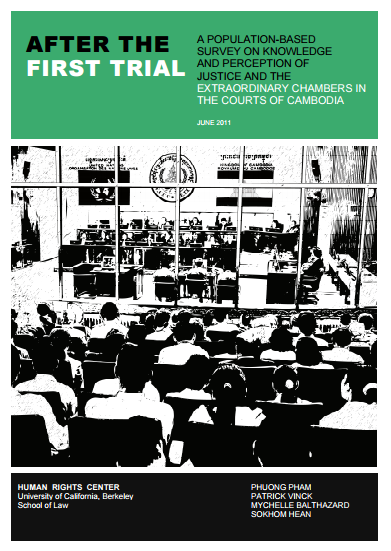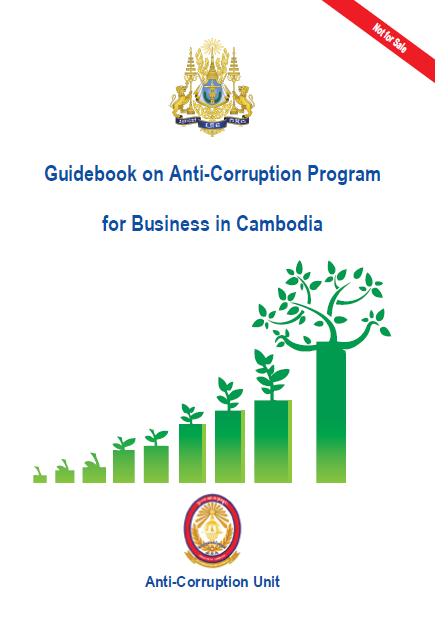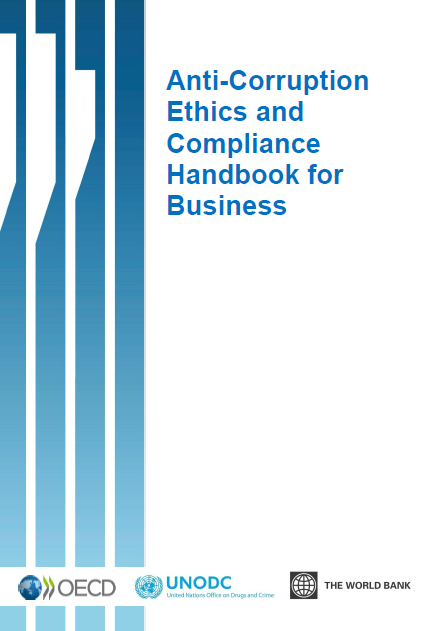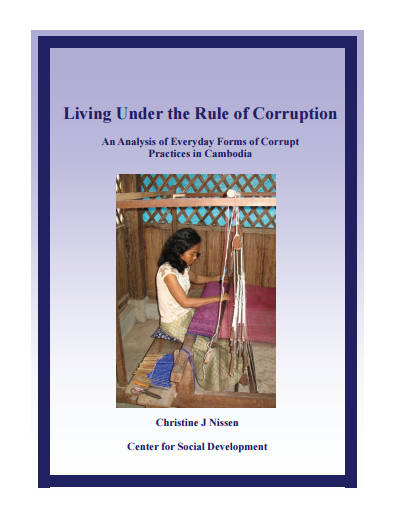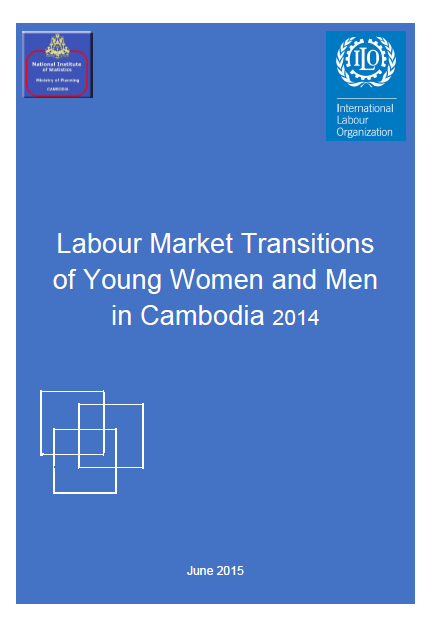Latest Entries
After the First Trial: A Population-Based Survey on Knowledge and Perceptions of Justice and the Extraordinary Chambers in the Courts of Cambodia
Publication Year: 2011 / Sources: Human Rights Center, University of California, BerkeleyOn July 26, 2010, Kaing Guek Eav, alias Duch, was convicted of crimes against humanity and grave breaches of the 1949 Geneva Conventions for events that took place three decades earlier under the Khmer Rouge regime. Following this important milestone for the Extraordinary Chambers in the Courts of Cambodia (ECCC), the present study was implemented to (1) monitor public awareness and knowledge of the ECCC’s work, (2) assess attitudes about justice and the desire for reparations for past crimes, and (3) recommend ways in which the ECCC, civil society, and the international community can continue to engage Cambodians in the work of the ECCC.
Download: English | KhmerGuidebook on Anti-Corruption Program for Business in Cambodia
Publication Year: 2015 / Sources: Anti-Corruption UnitBoth in the Cambodian and globalization context, increasing private sector players understand clearly their roles and responsibilities and they have even actively involved in initiatives to ensure that their businesses are conducted with integrity, transparency and accountability.
Download: English | KhmerAnti-Corruption Ethics and Compliance Handbook for Business
Publication Year: 2013 / Sources: Organisation for Economic Co-operation and Development (OECD), United Nations Office on Drugs and Crime (UNODC), and the World BankThe primary objective of the corruption risk assessment is to better understand the risk exposure so that informed risk management decisions may be taken. A structured approach for how enterprises could conduct an anti corruption risk assessment is outlined in the steps below. Readers should note that each enterprise’s own risk assessment exercise is unique, depending on that enterprise’s industry, size, location, etc.
Download: English | KhmerLiving Under the Rule of Corruption
Publication Year: / Sources: Center for Social DevelopmentThis report is the qualitative component of this research project which focuses on local-level corrupt practices. It mirrors the families and household’s concrete experiences with corrupt practices, the effects these practices have on their lives, and their ways and strategies of coping with corruption.
Download: English | KhmerLabour Market Transitions of Young Women and Men in Cambodia 2014
Publication Year: 2015 / Sources: National Institute of Statistics (NIS) & International Labour Organization (ILO)The work ethic is strong in Cambodia and job opportunities for youth are abundant, at least for the lesser skilled. Nearly three-fourths of Cambodian young people aged 15 to 29 years are already working. Unemployment is very low, although the rate increases slightly among more educated youth reflecting the current structure of demand in the country.
Download: English | Khmer
